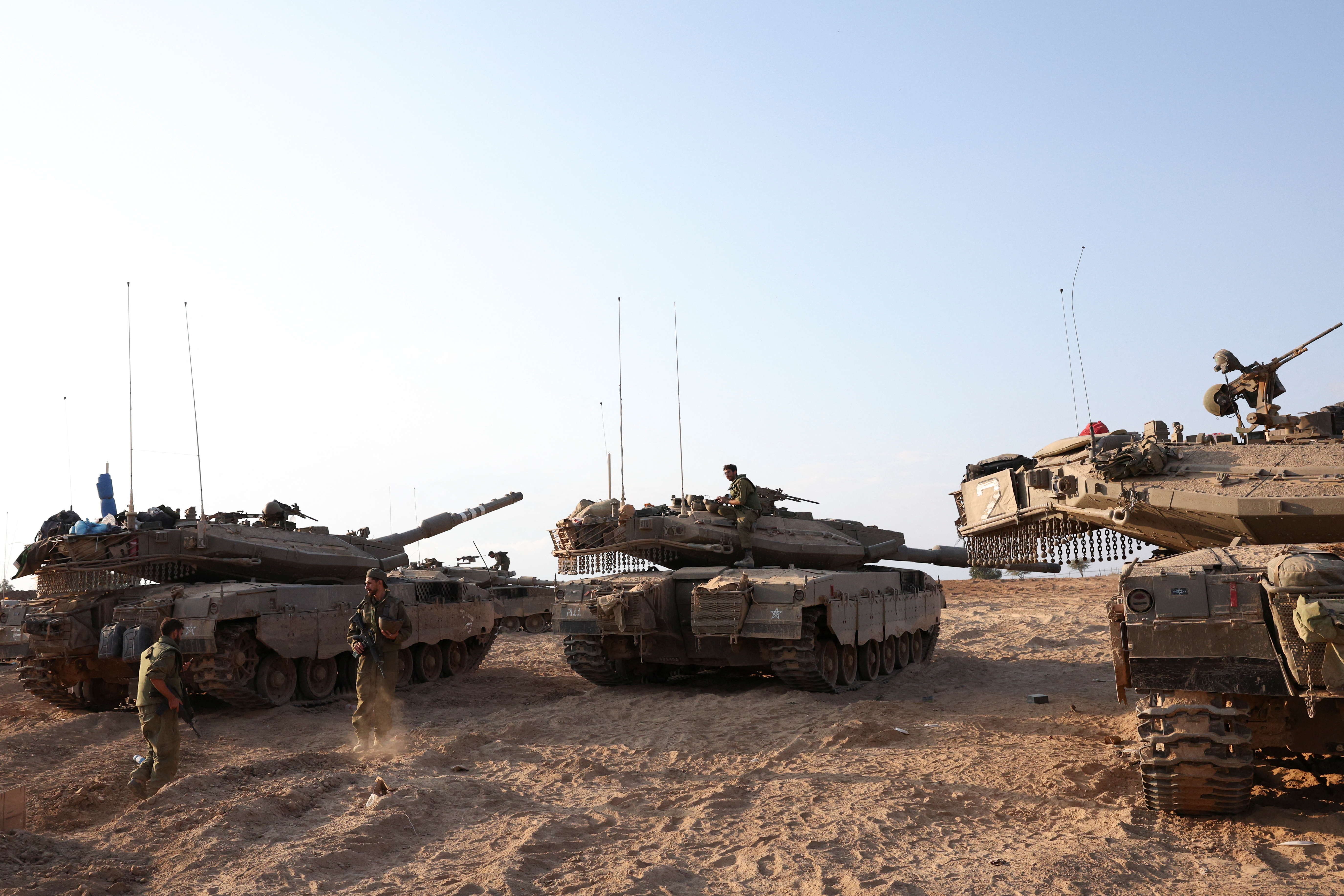
Israeli tanks are seen in Kibbutz Biri in southern Israel on October 14, 2023 following a massive incursion by Hamas militants from the Gaza Strip. REUTERS/Violeta Santos Moura Get license rights
WASHINGTON, Oct 15 (Reuters) – Economists and market strategists expect further ripple effects globally from the Middle East conflict, and are watching to see if the situation in other countries is likely to drive up oil prices and send capital to safer havens.
Israel was preparing to launch a ground attack there on Saturday after asking Palestinians in the Hamas-controlled Gaza Strip to leave the south. Meanwhile, the Israeli National Security Adviser warned the Lebanese militant group Hezbollah against starting a war on a second front.
“It looks like we’re headed for a massive ground invasion of Gaza and massive loss of life,” said Ben Cahill, senior fellow in the Energy Security and Climate Change Program at the Center for Strategic and International Studies (CSIS). . “Whenever you have this level of inconsistency, you have a market reaction.”
Over the past week, worries about the conflict have fed through asset prices, contributing to weakness in stocks with the S&P 500 (.SPX) falling 0.5% on Friday. Safehaven assets saw gold buying more than 3% on Friday and the US dollar hit a one-week high. Oil prices rose nearly 6% on Friday as investors assessed what the conflict would do to supplies from neighboring countries in the world’s top oil-producing region.
“If it looks like an escalating conflict, oil prices will go higher,” said Michael Englund, chief economist at Action Economics LLC in Boulder, Colorado.
A widening conflict could accelerate inflation and, by extension, interest rates around the world, said Bernard Baumehl, chief global economist at The Economic Outlook Group in Princeton, New Jersey.
However, while inflation and rates may rise in other countries in this worst-case scenario, the U.S. may be an exception as foreign investors invest capital in what they consider a safe haven during global conflict, Baumohl noted.
“Interest rates may come down,” he said. “Expect the dollar to strengthen.”
Other fuels could also be affected, as seen in recent developments such as Chevron ( CVX.N ) suspending natural gas exports through a major sea-sea pipeline between Israel and Egypt.
“The biggest risk to the oil market is that this conflict is attracting neighboring countries,” said CSIS’s Cahill.
Analysts noted that rising oil prices are unlikely to have a significant impact on U.S. gas prices or consumer spending.
“Consumers are unlikely to see a significant impact on gas prices anytime soon,” England said.
Reporting by Matt Tracy; Editing by Megan Davies and Muralikumar Anantharaman
Our Standards: Thomson Reuters Trust Principles.